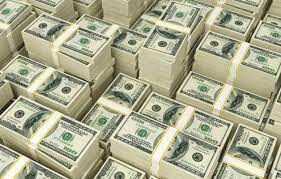By Jeph Ajobaju, Chief Copy Editor
Nigeria’s foreign reserves are down to $33.5 billion and can only cover imports for 8.75 months, lower than 9.04 months’ cover in May, and the lowest since February, according to data from the Central Bank of Nigeria (CBN).
Import cover is closely watched data by foreign investors as it determines how much foreign reserves a country has to cover imported goods and services.
Nairametrics recalls that Nigeria had an import cover of about 18 months in April 2018 with more than $47 billion in external reserves.
Since then, the amount has dwindled as the fall in oil prices affects dollar earnings. The lowest reserves between 2014 and June 2020 occurred in October 2019 which covered five months’ imports.
“Traditional ‘rules of thumb’ that have been used to guide reserve adequacy suggest that countries should hold reserves covering 100 per cent of short-term debt or the equivalent of 3 months’ worth of imports,” says the International Monetary Fund (IMF).
This suggests that despite the drop in import cover, Nigeria still has adequate reserves to finance imports.
Unrealistic calculation
However, Nairametrics writes that critics of the foreign exchange (forex) policy of the CBN argue that the import cover may not reflect reality for two reasons.
First, external reserves of about $33.9 billion in June (now $33.5 billion in August) include FX Swap obligations of the CBN which, if adjusted, could drop import cover to under six months.
Second, import is hampered by the policy of the CBN on banks’ funding of forex from government sources for 41 items. This reduces demand for forex.
Dollar scarcity being experienced by most businesses is also a major challenge confronting importers.
Most of their demands cannot be met on the heavily financed and subsidised official market, so they source forex from the black market. Such demands are not included in the calculation for import cover by the CBN, according to Nairametrics.
Import bill is rising, with imports in the second quarter of 2021 (Q2 2021) shooting to N6.85 trillion against N4.4 trillion in Q2 2020.
Even when adjusted for exchange rate (N380/$1 in 2020 vs N410/$1 in 2021) this year’s import numbers amount to $16 billion against $11.5 billion in 2020, and remains significantly higher.
Most forex demand is for refined petroleum products estimated at N1.9 trillion or about 66.3 per cent of total imports. It was 72 per cent of imports in 2020 and 74.45 per cent in 2019.
Adjust for fuel imports, Nigeria’s import cover will be in the double digits.
Import cover, a key metric
“The empirical analysis in the paper suggests that 3 months of imports remains broadly appropriate for countries with flexible exchange rates, given the estimated benefits provided by reserves in reducing both the probability and impact of shocks.
“The analysis also suggests that countries with good institutions and policies need lower levels of reserves,” the IMF adds.
The IMF considers import cover as one of the key metrics in determining the external reserves needs of a country.
It recently announced it was loaning Nigeria about $3.3 billion and the Debt Management Office (DMO) said it was seeking $6 billion in Eurobonds to raise external reserves.
The CBN has highlighted the significance of foreign dollar inflow such as bond issuances to its reserves.
Its last monetary policy committee communique “emphasised the complementary role these bonds would play to boost foreign exchange supply, improving accretion to reserves and easing the exchange rate pressure.”












